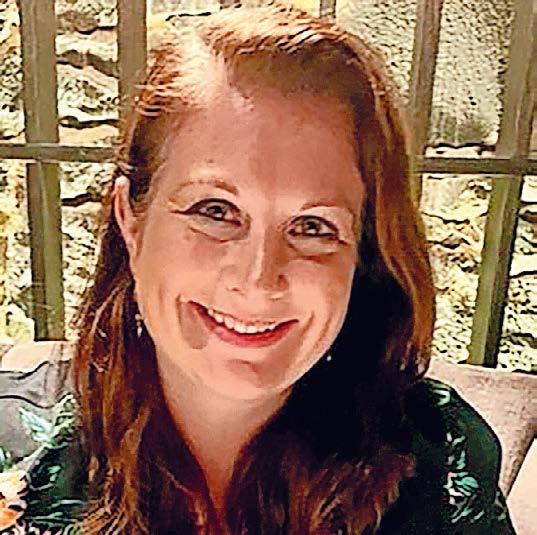
3 minute read
Turning a big idea into social enterprise
By VAL McFARLANE
There has long been a gender imbalance in health and medical research but, in 2023, it remains shockingly stark.
Early-career female researchers outnumber males, but the further up the ladder you look, the fewer women there are – women hold fewer senior academic positions, speak at fewer conferences and receive less research funding.
The reasons are many and complex, from patriarchal structures within academia, to poor work-life balance. But the result is the same: women abandon the traditional academic pathway from PhD to professorship, and often quit science altogether.
It’s a situation Dr Melina Georgousakis is working hard to change, having witnessed first-hand the female brain drain from science during her early career in infectious disease research.
“Women from our sector were being lost at a mass rate and, at the time, not very much was being done about it,” she says.
“I thought, we don’t need them all to be academic researchers, but we can’t lose this brain trust from the sector.”
In 2014, Georgousakis founded Franklin Women to bring together women working in the health and medical research sector.
“We were all working in silos and were all going through our really tough journeys alone,” she says. “There wasn’t really a support network.”
Named in recognition of Rosalind Franklin, who captured the image of DNA that led to the discovery of its double-helix structure, Franklin Women became that network. Today, it has around 400 members across Australia, and 15,000 others engaged as newsletter and social media subscribers.
Members range from PhD students to institute directors and corporate executives, working in roles from vaccine development to health communications.
“It’s really a mixed bag and that is its beauty and its value,” says Georgousakis.
Franklin Women is a for-profit social enterprise. Membership fees are reinvested to support members’ careers, ultimately benefiting the sector and society.
As well as in-person and online networking events, the group offers professional development activities and a mentoring program. There’s also a scholarship available to help reduce the impact of caring responsibilities on recipients’ career progression.
The organisation is designed to be flexible and responsive. This proved invaluable during the height of the COVID-19 pandemic, when many members found themselves heavily involved in the response.
“They were women who were on the frontline who also had a lot of caring roles, university lecturers whose teaching was turned upside down … they were being pulled in so many directions,” says Georgousakis. “The last thing that anyone really needed in that time was more things to do.”
The organisation paused membership fees for several months to ease financial pressure. As in-person gatherings were replaced by virtual events, the focus changed from career progression to wellbeing and mental health.
And funds for the scholarship were redirected to pay for meal service vouchers.
“Women, typically, were looking after kids, working from home, trying to do their teaching, trying to do their research, all while living in a bubble, and then they also had to grocery shop and plan a meal, cook a meal,” Georgousakis adds.
“That was getting in the way of their work. They didn’t need a work opportunity, they just needed time to do it.”
Georgousakis’ determination to clear the way for women is increasingly shared by employers. To date, 19 organisations have joined Franklin Women as partners.
“Connecting and investing in women is my primary aim because it is going to take a long time to change culture and I don’t want to lose them while that’s happening,” she explains.
“There is no point empowering women and giving them new skills and giving them opportunities if they go back into organisations where the cultures are just not inclusive. They are set up to fail.
“But now, we have an amazing alliance of partner organisations who are actively stepping up and trying to better understand the data in their organisations, where women and non-binary people are represented, and what they can do to change that at an organisation level.”
The results are promising. The organisation’s growth means what was once Georgousakis’ side hustle is now her full-time job.
In that, she represents the spirit of Franklin Women perfectly. She’s taken her own career advice, which is to “follow your own path”.
“It’s been so true for me and other members of the Franklin community,” she says. “It looks like you are up against so many challenges and the pathways seem very defined for you, but when you really think about who you are and what you love, and stay true to that, then all the other noise around the outside doesn’t really matter.” franklinwomen.com.au









